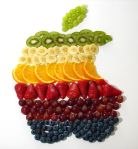Whether genetically modified food (sometimes called GM foods or GMOs) is beneficial to humanity or dangerous to our health is a debate has been raging for the past few years. The short answer is: both, to some extent, though the dangers of genetically modified food far outweigh the benefits, as we will see here.
The problem with coming up with a definite answer is that there are still relatively few human studies on the long-term impact to our health, despite a number of recent animal studies showing serious health consequences from eating a diet containing GM foods.
What Are GMOs?
The origins of genetically modified food began with a desire to more adequately feed large populations of people in poor countries, some of whom were suffering from starvation. The supposed benefits of genetically modified crops are that they can potentially produce higher yields, and reduce the need for additional pesticides and herbicides.
They are also supposed to better withstand fluctuations and extremes in weather. However, as more is discovered about the effects of these genetically modified plants on people, animals and the environment, serious questions are being raised as to their benefits.
On the surface, GM foods look the same as non-GM foods and have the same nutritional value. However, the DNA of GM foods are different. Food is genetically modified when genes from bacteria, viruses, insects, animals or even humans are inserted into its DNA to alter the organism’s characteristics. This is done to food crops in order to create plants that are resistant to the herbicides used to destroy weeds and to enable them to produce their own poison to kill insects harmful to crops.
Bacillus thuringiensis (Bt) toxin is a soil bacterium that has been used as a pesticide spray for many years. When insects bite into the plant, the poison they ingest splits open their stomach, killing them. Though GMO foods that contain this toxin are resistant to insects, with continued exposure insects may develop a resistance to it, requiring ever-stronger herbicides and dangerous chemicals to keep crops insect-free. Resistant insects will then proceed to destroy crops as they did before, but now no pesticide will be effective, and we’re back to square one.
The biotechnology companies that engineered these crop seeds claim that the pesticide has a history of safe use since Bt bacteria spray has been used by organic farmers for natural insect control. The difference, however, between the Bt toxin produced by GM plants and natural Bt spray is that the Bt toxin in the GM plants is thousands of times more concentrated than natural Bt spray, is designed to be more toxic, has properties of an allergen, and unlike the spray, cannot be washed off. Though the toxins are supposed to be destroyed in the gut, studies have found this not to be always the case. So, essentially, we end up consuming these “harmless” toxins, the full effects of which are not yet known
It is estimated that at least 70% of processed foods on U.S. Supermarket shelves contain at least some genetically engineered food.
As it now stands, as much as 85% of U.S. Corn, 91% of soybeans and 88% of cotton (mainly made into cottonseed oil that is common in processed foods) is genetically engineered. Unfortunately, the FDA does not require that food labels state the presence or amount of genetically altered food in a manufacturer’s product. You may be surprised to find that most of the processed foods you eat, including sodas, soups, crackers, and condiments, contain genetically engineered ingredients.
Genetically modified food products include soy, canola, corn, cotton (for cottonseed oil), Hawaiian papaya, sugar beets, alfalfa, zucchini, and yellow squash. In addition, dairy products from cows that were injected with rbGH, food additives, enzymes, flavorings, and the artificial sweetener aspartame may also contain GMOs. Any food containing these ingredients or foods derived from them should ideally be avoided, though this can be difficult, as a large percentage of foods contain ingredients derived from corn. These include:
- Ascorbic acid (Vitamin C)
- Aspartame
- Caramel Color
- Cellulose and methylcellulose
- Citric Acid
- Corn meal
- Corn oil
- Corn starch, food starch or modified food starch
- Dextrin or maltodextrin
- Dextrose, fructose or glucose
- Dyes
- High-fructose corn syrup
- Mono- and diglycerides
- Monosodium glutamate (MSG)
- Sorbitol
- Vanilla extract
- Xantham gum
You should also stay away from soy products, as most of them are derived from genetically modified soybeans. This includes soy flour, lecithin, soy protein, soy isolate and isoflavone.
Next, we explore the dangers of genetically modified foods and the adverse health effects it has been shown to have on animals. You can protect yourself from genetically modified food by purchasing organic foods as much as possible and seeking out products that advertise they are “non-GMO” or “GMO-free.” Find out how to avoid GMOs by reading our handy guide. Genetically modified food has no place in healthy eating.






